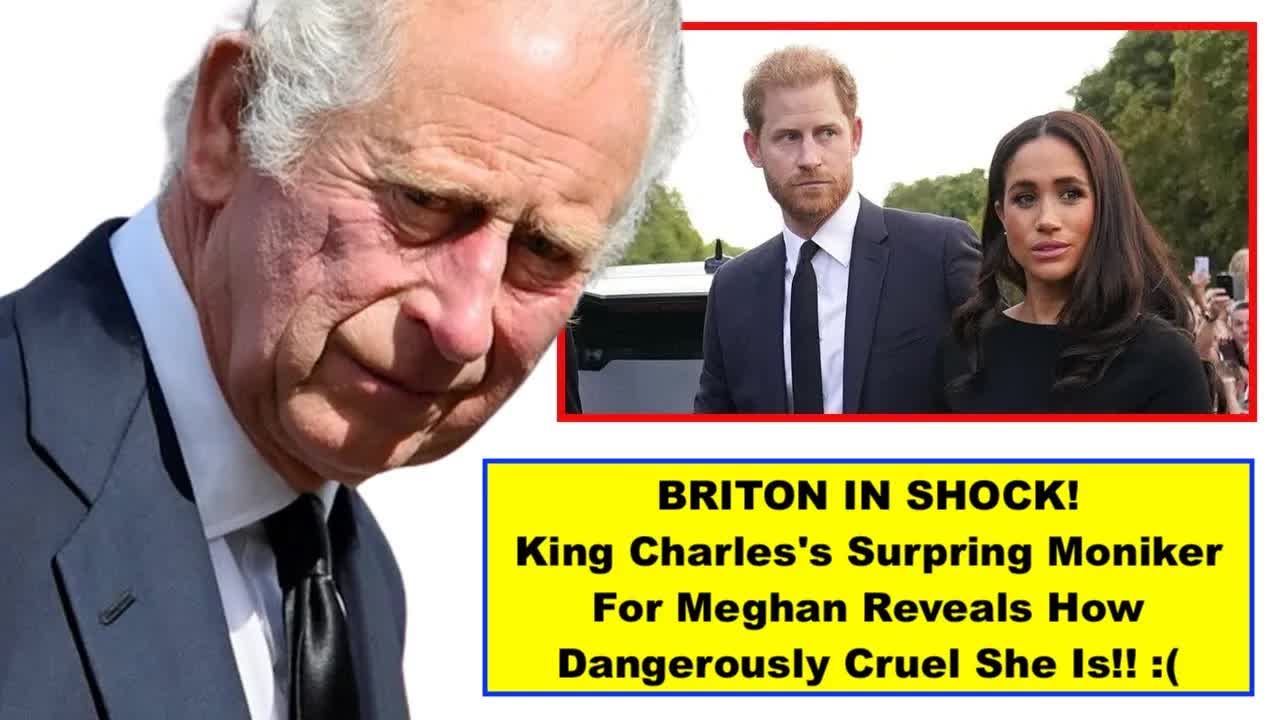The News
King Charles’ Unique Nickname for Meghan Markle Revealed
In a fascinating look into royal relationships, recent revelations have surfaced about the intriguing nicknames the British royal family uses for one another.
Among these, King Charles III's peculiar choice for his daughter-in-law, Meghan Markle, has caught the attention of royal watchers and enthusiasts alike.
This insight comes from royal expert Katie Nicholl, who discusses the dynamics of the royal family in her latest book, *The New Royals: Queen Elizabeth's Legacy and the Future of the Crown*.
According to Nicholl, King Charles affectionately refers to Meghan as “Tungsten,” a name that signifies her strength and resilience.
This nickname isn't just a casual label; it reflects the admiration Charles has for Meghan's character, especially highlighted during a significant event in 2018.
At the Royal Foundation Forum, Meghan showcased her impressive qualities, standing out among other royals present that day.
Nicholl describes the moment when Meghan, alongside Prince Harry, Prince William, and Kate Middleton, truly shone.
While Kate was heavily pregnant and the Cambridges were striving to redefine their roles within the monarchy, Meghan captivated the audience with her humor and passion.
It was a pivotal occasion that signified a shift in how the royal family perceived Meghan's contributions.
The royal expert notes that during this event, Meghan's polished demeanor and engaging presentation left a lasting impression on her in-laws.
She was described as the “breakout star” of the group, demonstrating confidence and capability that surprised both William and Kate.
This moment was a wake-up call for them, revealing Meghan's potential to make a significant impact within the royal family.
The camaraderie displayed by the so-called “Fab Four” during this event was striking.
However, since then, the dynamics have shifted dramatically.
Harry and Meghan's decision to step back from their royal duties and relocate to the United States has created a noticeable rift, leading to speculation about the state of their relationships with the rest of the family.
Given the context of the nickname “Tungsten,” many wonder what it signifies about the relationship between King Charles and Meghan.
Was there once a closeness that has since deteriorated?
The complexities of royal life often mask underlying tensions, and this situation seems to be no different.
As royal fans digest this information, they are left pondering the implications of such a nickname.
Does it suggest a bond that has frayed over time?
Or could it hint at a lingering respect that persists despite the current challenges?
These questions remain open for discussion among those invested in royal affairs.
Nicholl's insights provide a glimpse into the personal dynamics of the royal family, showcasing how nicknames can carry profound meaning.
They can reflect not only affection but also the trials and tribulations that can shape relationships over time.






























































